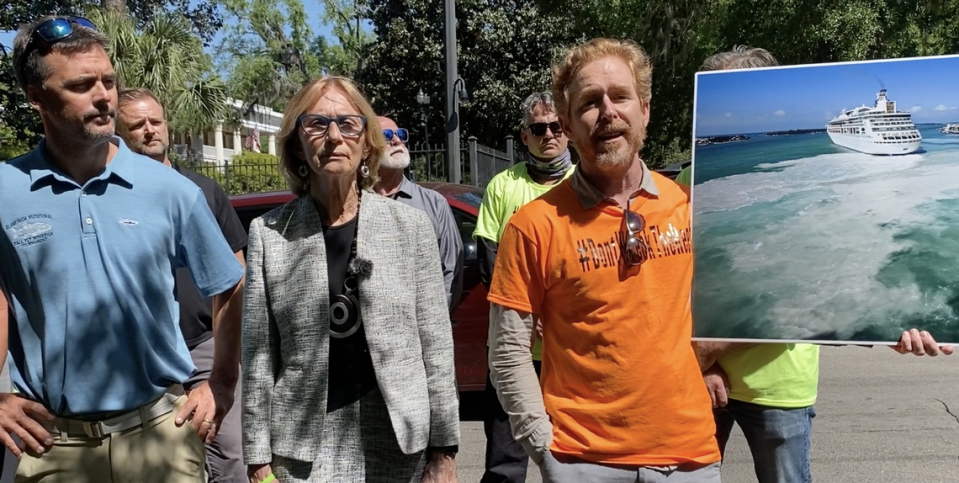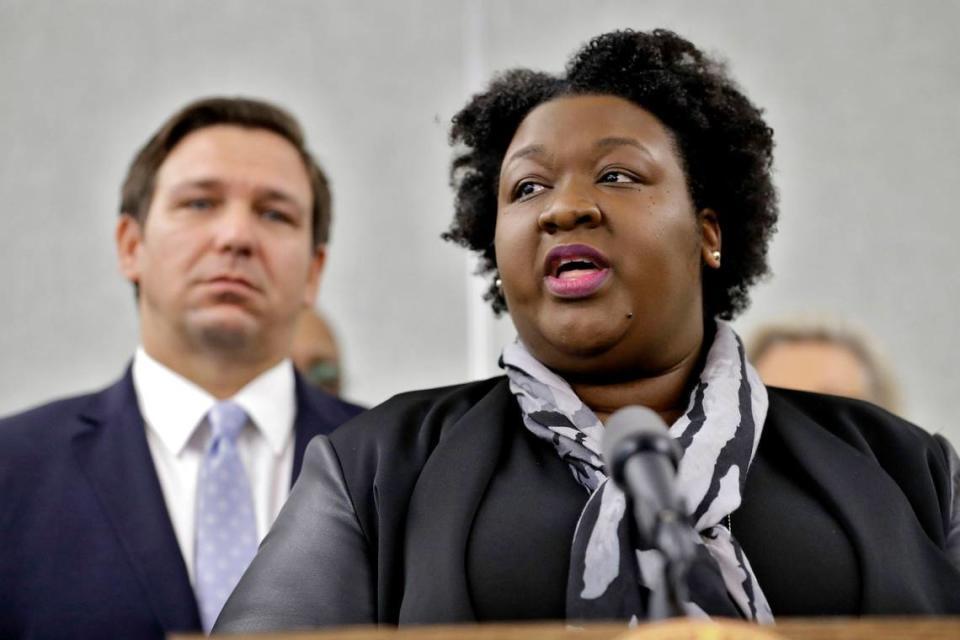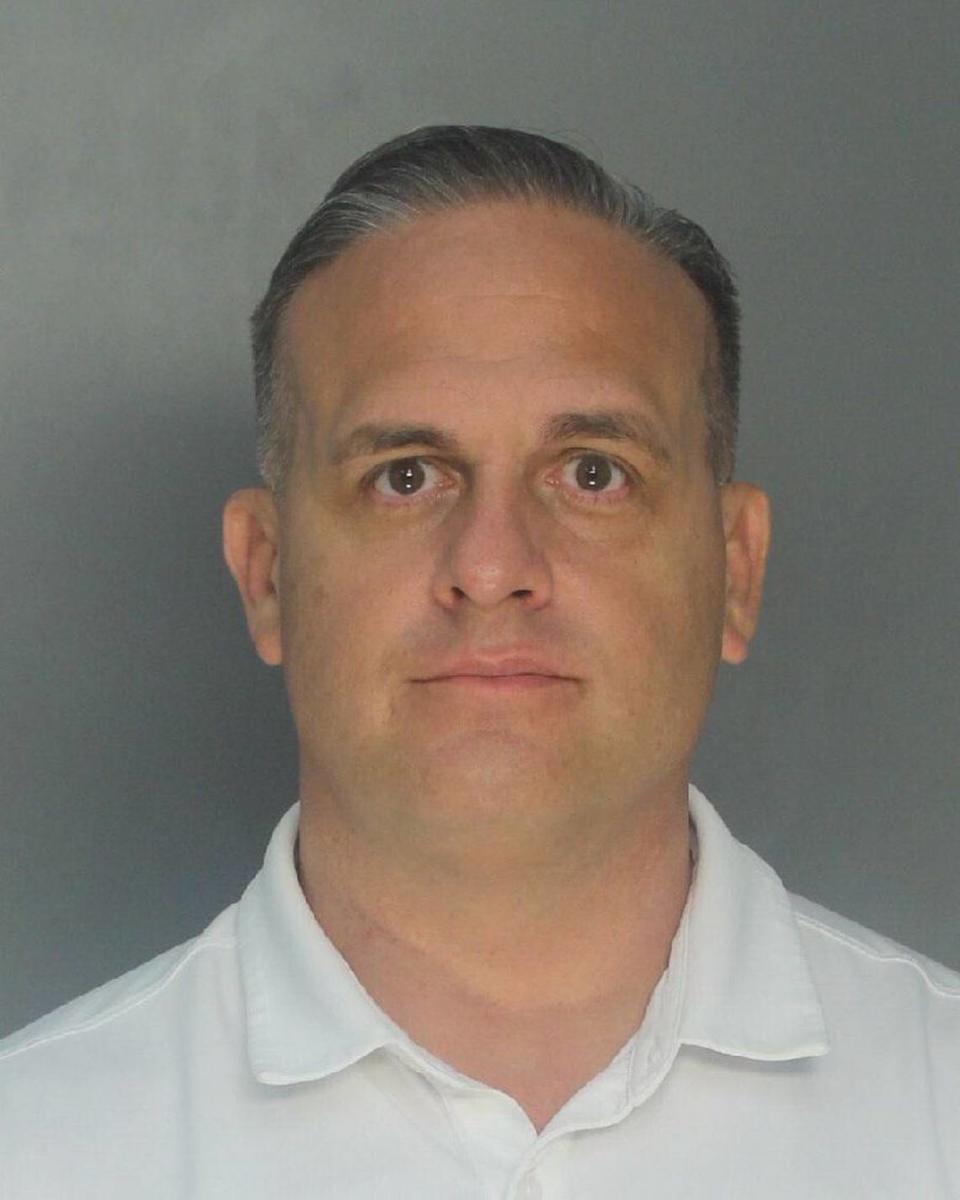Backroom legislative deals. DeSantis shouts back at boycott threats - but will he stand down?
It’s Monday, April 18, and we’ve entered the stage of the Florida legislative session when backroom deals become the lubricant to get leadership priorities done.
Budget negotiations have begun in earnest and those not settled by the end of the day today will get bumped up to the budget chairs. Normally, by this stage of session, throngs of lobbyists and a steady stream of public citizens inject a bit a friction into the process, often delaying and sometimes modifying legislation.
But this year pandemic protocols have almost completely closed off the Capitol to the public. Lobbyist access is uneven and difficult, so a growing list of bills with significant and long-term consequence are inching forward — with noteworthy ease.
WHAT WE’RE WATCHING
Anti-racist boycott? The most controversial bill of the legislative session passed last week. HB 1, the “anti-mob” legislation promoted by Gov. Ron DeSantis and blasted by Democrats as racist, unconstitutional and partisan, passed the Senate with all but one Republican in support. It was immediately sent to the governor. He is expected to sign it as soon as today, as the George Floyd trial comes to a close, and it will take effect immediately.
‘Genuflect to wokeness’: Democrats tried to call out Republican contributors to step up and speak out in opposition to HB 1 which, along with a voting reform package is viewed by opponents as attempting to suppress the vote of minorities in Florida. But DeSantis appeared on Fox News on Sunday and accused corporate America of “trying to genuflect to this wokeness.” He warned the call for “wokeness” from the left might never end, but he also did not suggest that corporate push back won’t work.

NCAA is watching: We’ll find out soon enough if corporate threats matter with the fate of the bill to ban transgender athletes from women’s and girls’ scholastic sports. The Florida House voted last Wednesday to pass the measure, HB 1475, with just one Democrat joining Republicans. Two days earlier the NCAA warned that it could boycott Florida and other states if they attempt to pass bills that limit transgender participation in sports. Florida is set to host more than 40 regional or national NCAA championship events between September 2021 and May 2026. We’ll be watching if the Senate heeds the NCAA warning.
Voting reform gets watered down: Florida senators last week substantially scaled back a previous bill that attempted to eliminate vote-by-mail drop boxes. Then, it added nearly two dozen smaller changes to how mail ballots would be requested, examined and reported. Georgia’s experience may be having an impact on Florida’s election reform efforts, but the November success of the Republican majority in Florida gave legislative leaders confidence that they can move forward with some limits on voting.
Police reform gets bi-partisan support: In a significant sign that Republicans want to be responsive to some of the racial criticism surrounding the election reform and “anti-riot” bills, Republican House leaders and members of the Florida Legislative Black Caucus announced an agreement on a bill last week intended to improve trust in police by addressing use of force and other police tactics.
The bill, introduced by the House Judiciary Committee, would set statewide use-of-force policies for Florida law enforcement officers, limit the use of the controversial choke-hold tactic and require the state to collect data on cases in which police officers use force that results in serious bodily injury or death. Both sides said their talks began after the George Floyd murder and were unrelated to HB 1 or the election, but the timing of the accord, coming during the HB 1 debate and late in the session was significant.
End of the toll roads: A day after the “anti-riot” bill cleared the Senate, a House committee got to work on a priority of Senate President Simpson and environmentalists: dismantling the controversial road project that would have built more than 300 miles of new toll roads across rural parts of Florida. The bill has already passed the Senate.
Was movement on the roads bill a trade for something else? Here’s a look at what some of those other trade-offs look like.
Is gaming in the cards? Meanwhile, Simpson is working hard to keep a gaming deal alive between the state and the Seminole Tribe of Florida. Committees in the House and Senate advanced a bill drafted by the Senate to update the state’s gambling regulation by creating a Gaming Control Commission and another to end live racing as a condition of operating slot machines and card rooms, the latter provision designed to help win parimutuel industry support.

Tribe rejects, keeps talking: DeSantis’s lawyers made an offer late Monday to the Seminole Tribe and by Tuesday the Tribe had turned it down, snagged over how much of a cut the Tribe would have to give parimutuels and sports teams to operate a piece of the sports betting book. We took a look at what the offer looked like here.
Talks continued throughout the week and Simpson hinted that while the governor and Tribe may not get a deal done before session ended, legislators could come back in special session to ratify an agreement if one should emerge.
WHAT WE’RE TALKING ABOUT
$100 billion budget! Many of the biggest deals of the session involve the state budget. Senate Appropriations Chair Kelli Stargel said Friday the spending plan could exceed a record-breaking $100 billion mark this year, buoyed by $10 billion in federal stimulus funds. Is this the silver-lining of the pandemic for legislators? They didn’t have to deal with the distractions of public visitors and the hassle of meeting lobbyists while the infusion of $10 billion certainly helps leaders grease votes. Reluctant legislators may be promised infrastructure projects back home, in exchange for support on difficult bills.
Offering a major concession, the Florida Senate on Saturday agreed to a House plan to shorten prison guards’ daily work hours after it earlier in the week backed off a plan to shutter four prisons. They also both agreed to cut Bright Futures funding for college students by $37 million, particularly in textbook allowances in order to steer students to lower-cost digital options.
Auto insurance road kill: Another bill that has been on the agenda for years but seems to be getting easy traction this year is a plan to repeal the state’s “no-fault” insurance provision and require every motorist to carry bodily injury coverage. If passed, it would be the biggest change to auto insurance law in 50 years.

Key West asks DeSantis for life vest: Residents of Key West turned their attention to the governor last week to halt an effort to preempt three new ordinances adopted by more than 60% of the city’s voters. The measures ban cruise ships with more than 1,300 passengers from docking at the city port and limit the total number of cruise visitors who can disembark each day to 1,500. The bill attempting to overturn their vote passed its final committee in the Senate and a similar bill, HB 267, is barreling through the House.
At odds over unemployment: One area the chambers differ is over unemployment compensation. In a rare show of bipartisanship, senators last week agreed to changes that would increase the number of people eligible for benefits and boost the maximum benefit by $100 a week. But within hours of opening budget negotiations, the House made it clear it wasn’t on board with the $60 million proposal but instead wants $2 million for an update to the state’s CareerSource program. The governor hinted he thinks Florida’s jobless get enough money under the current system, one of the lowest in the nation.
Deep divide over tax breaks: The Senate is advancing SB 7082 to give corporations $212 million in state income tax savings in the 2021-22 tax year on top of federal income tax savings. Included in the package is $31.6 million for the disparagingly referred to as the “three martini lunch” tax deduction that allows qualifying businesses to write off 100% of the cost of all business meals. The House passed a different set of tax breaks, including a new sales tax holiday called “Freedom Week,” that would fall on the week of the Fourth of July. The House also rejected the $212 million in “piggyback” federal tax savings, including the provision related to business meals.

Black women promoted: DeSantis has elevated three Black women to leadership positions regulating Florida’s healthcare system. They say equity in care for minority communities is a high priority. Will they be able to make a difference? Read more here.
Grim statistic: A majority of Black students in Miami-Dade County Public Schools are failing state tests in English Language Arts, math and science, despite graduation rates topping 85 percent, according to the district’s Office of Academics and Transformation. For example, in 2019, just 40 percent of Black students in grades 3 through 10 passed the FSA English language arts exams compared to 61% of Hispanic students and 77 percent of white students.
‘Money we don’t need’: By contrast, consider this statement from Rep. Randy Fine of Brevard County, the House’s lead negotiator on the education budget. Referring to the federal stimulus money the state is getting for education, he said Saturday: “It is an absolute travesty that the federal government put our children in debt to give us education money we do not need.”
Biden spells out infrastructure needs: The Biden administration does think Florida needs the federal money and last week issued a report card giving Florida a “C” grade for its infrastructure, citing increasing commute times and lack of affordable housing. The as part of the president’s effort to pass a historic $2.3 trillion spending plan in the face of Republican opposition it included stats such as: Floridians who take public transportation spend an extra 77.9% of their time commuting and the state’s drinking water infrastructure will require $21.9 billion in additional funding over the next 20 years.
DeSantis v. YouTube: The governor’s combative approach to governing and politics took center stage last week as YouTube removed a video of a roundtable the governor held March 18 about the pandemic, saying it “contradicts the consensus of local and global health authorities” and the governor blasted the move.

Artiles pleads not guilty: Former Miami Republican senator Frank Artiles pled not guilty and asked for a jury trial in his related to his alleged planting of a no-party candidate in a state Senate race. Mystery continues to shroud the origin of the money in the scheme, but details are starting to emerge.
Crazy story of the week: A Russian-speaking video blogger from South Florida walked alongside the throngs of MAGA supporters at the Jan. 6 insurrection, broadcasting to Russian speakers across the United States and in Russia. His message: a Stop the Steal narrative and other debunked election-fraud allegations. The details in this story will provide you with lots of cocktail chatter. Consider this: His YouTube and Instagram accounts included electronic payment links to PayPal and Zelle -- for appreciative listeners who might want to thank him.
Stay well and we’d love to hear from you. Miami Herald Capitol Bureau Chief Mary Ellen Klas curated this newsletter. If you have any ideas or suggestions, please drop me a note at meklas@miamiherald.com.
Special offer: The Miami Herald needs your support if we are to continue to supply the meaningful local journalism you count on during these unprecedented times. We’ve lowered our monthly rate for unlimited digital access to $.99 a month. Check it out!
Know someone who’d like to get this? Send this to a friend to receive our weekly newsletter on politics and policy.

 Yahoo Movies
Yahoo Movies 